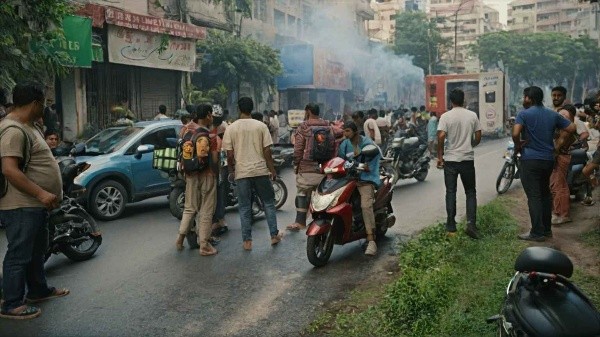Iran’s Plan to Strike Back Against the U.S.
Iran’s Military Preparations Following U.S. Attacks
Loading...

Health Ministry says 14 people killed, 450 wounded in latest device explosions, which Hezbollah blames on Israel.
Casualties and Damage from Recent Blasts
In a troubling escalation of violence, at least 14 people have been killed and 450 injured in Lebanon due to a series of explosions linked to communication devices, as reported by the Ministry of Public Health. This wave of blasts follows a previous incident where thousands of pagers, primarily used by Hezbollah, detonated across the country. The recent attacks have heightened fears that the ongoing conflict between Israel and Hezbollah could spiral into a full-scale war.
Israeli Military's New Phase in the Conflict
Israeli Defence Minister Yoav Gallant addressed soldiers on Wednesday, declaring that the country is entering a "new phase" in the ongoing war. He emphasized the need for courage, determination, and perseverance among the troops. While he did not directly reference the recent explosions, he commended the efforts of Israel's military and security agencies, stating that their results have been "very impressive."
Details of the Explosions
Multiple explosions were reported across Lebanon on Wednesday, particularly in areas known to be Hezbollah strongholds, including eastern and southern Beirut and the Bekaa Valley. The state-run National News Agency indicated that pagers and other devices exploded, with Hezbollah's al-Manar TV attributing the blasts to detonating walkie-talkies. Eyewitness reports from Al Jazeera's Ali Hashem described chaotic scenes in Tyre, where he witnessed two explosions occurring almost simultaneously, causing panic and a rush of ambulances to the scene.
The explosions were not limited to pagers; reports indicated that solar energy systems and batteries in vehicles also detonated, contributing to the chaos. In Beirut, a blast occurred during a funeral for three Hezbollah members and a child who had died from the previous day's explosions, further amplifying the tragedy.
Impact on Civilians and Hospitals
The recent attacks have overwhelmed hospitals in Hezbollah-dominated areas, with health authorities calling for all available medical personnel to report for duty. The civilian population is reeling from the violence, with many injured individuals flooding medical facilities. The explosions on Tuesday and Wednesday have been particularly devastating, with the earlier incident resulting in 12 fatalities, including two children, and approximately 2,800 injuries.
Hezbollah's Response and Regional Tensions
In response to the attacks, Hezbollah has accused Israel of being "fully responsible" for what they termed "criminal aggression." The group vowed to avenge the recent explosions and reiterated its commitment to supporting Hamas in Gaza. Cross-border exchanges of fire between Hezbollah and Israeli forces have been ongoing, with Hezbollah asserting that these confrontations are separate from the broader conflict.
Lebanese Foreign Minister Abdallah Bou Habib expressed grave concerns over what he described as a "blatant assault on Lebanon's sovereignty and security," warning that such developments could signal a wider war. The international community is also taking note, with United Nations Secretary-General Antonio Guterres urging all parties to exercise "maximum restraint" to prevent further escalation.
Conclusion
As the situation in Lebanon continues to deteriorate, the potential for a broader conflict looms large. The recent explosions have not only caused significant casualties but have also intensified the already volatile atmosphere in the region. With both sides poised for further action, the coming days will be critical in determining the trajectory of this ongoing conflict.
Editor
Iran’s Military Preparations Following U.S. Attacks
Troops remain in five strategic locations, raising fears of renewed tensions and long-term occupation.
Opposition forces have taken control of the capital after a significant offensive. Here is how it unravelled.
